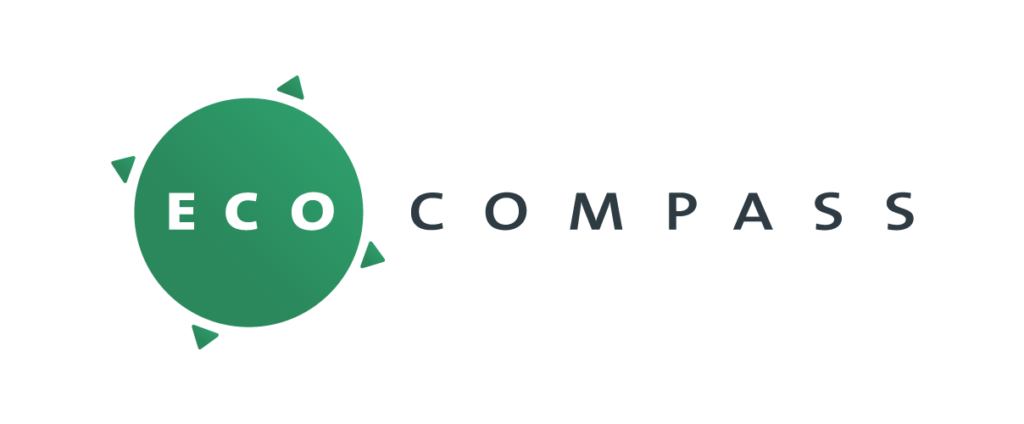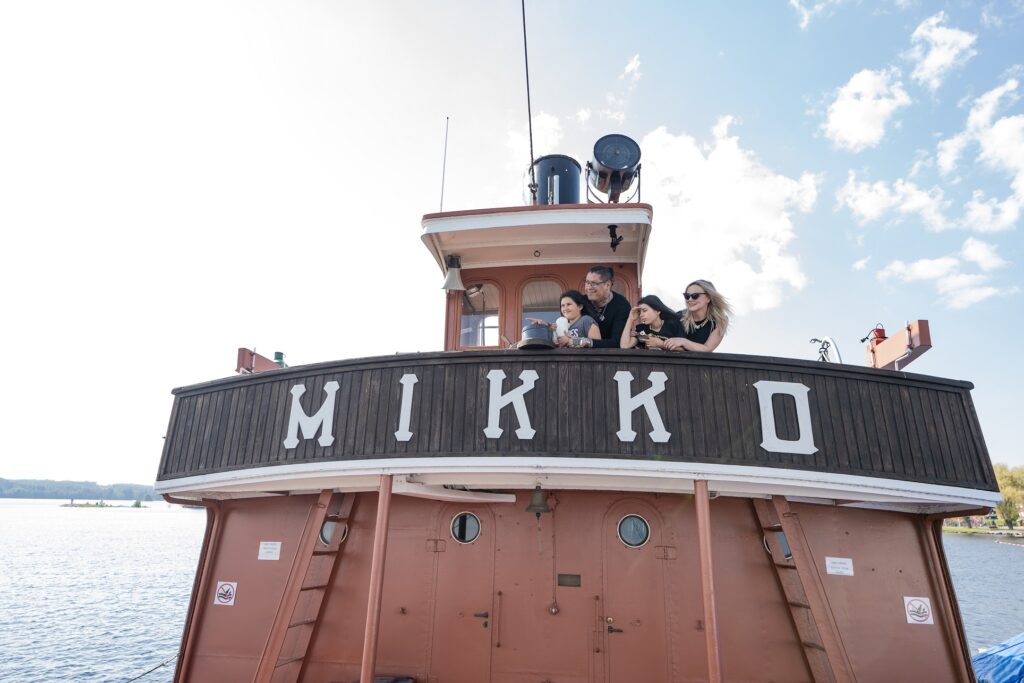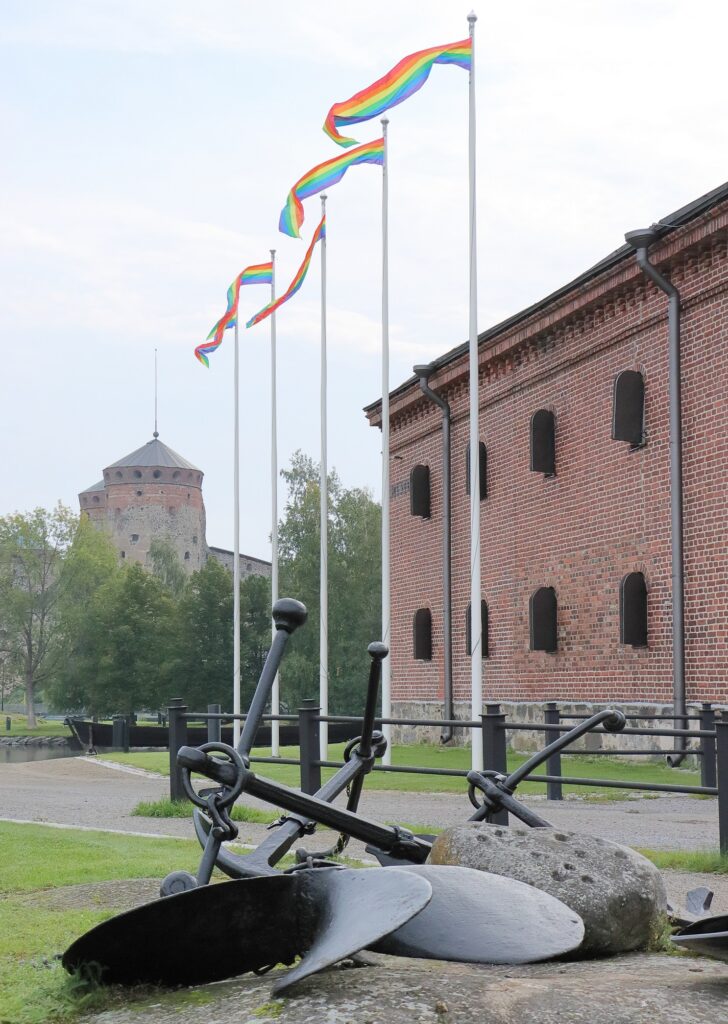Responsibility at Riihisaari
We are dedicated to upholding the principles of sustainable development at Riihisaari. In late 2024, the Museum of Savonlinna passed the Sustainable Travel Finland program developed by Visit Finland for the Finnish travel industry, and in that same year was granted the EcoCompass certificate for environmental responsibility, seen below.

Sustainable Travel Finland is a nationwide program for the promotion of sustainable travel overseen by Visit Finland, accounting for ecological, socio-cultural and economical sustainability. Thanks to our efforts in upholding these principles, we have been awarded the STF certificate.
In accordance with the STF and EcoCompass certificates, and with the aid of the EcoCompass environmental management system, the Riihisaari Museum of Savonlinna has pledged to constantly develop new methods of responsibility, trained our staff in the best practices of responsible work in our field and laid out a sustainable development plan, including our current situation as well as goals, measures and benchmarks for the future.

For us, environmental responsibility means concrete actions. We are committed to saving natural resources and increasing our positive impact on the environment. As proof of this, we have been awarded the EcoCompass Certificate.
We are constantly moving towards more responsible modes of operation, taking into account not only environmental responsibility, but also social, cultural and economic well-being. We have initiated the Sustainable Travel Finland program to help us achieve these goals. Both STF and Ecocompass certificates are periodically renewed to ensure our development continues on pace to match our increasingly demanding field in the future as well.
Cultural Responsibility and Our Mission
Cultural responsibility is at the core of our museum’s mission. The Museum of Savonlinna upholds, promotes, records and enlivens both local and regional elements of cultural heritage, with a special focus on the cultural history of the Lake Saimaa area and the history of travel along the inland waterways. As the museum with regional responsibility for South Savo, we are charged with developing museum work in the area and various tasks relating to our built cultural environment and archaeological cultural heritage. The museum hosts examples of Lake Saimaa’s most prominent types of steam ship every summer.

The Finnish Museums Association and the International Council of Museums named Riihisaari as Finland’s Museum of the Year in 2023.
Respecting, Repairing and Renovating Our Premises
Our museum is based in a historically valuable building, originally built as a granary in the early 1850s. In 2019-2021 the museum was carefully renovated, improving its usability, accessibility and building services systems. To combat underutilization, we rent our display and conference rooms to outside parties as well.

Equality, Equity and a Non-Discriminatory Approach
We treat all our staff and visitors equitably. We have declared ourselves a discrimination-free area, meaning we approach everyone similarly, regardless of their gender, age, ethnic background, creed, conviction, opinion, health, ability, or sexuality.
We provide a lowered entrance fee to students, seniors and the unemployed, and free entry to visitors under the age of 18. We are participants in the nationwide Kaikukortti card program, enabling free access to various culture venues and activities to low-income cardholders.
We strive to develop our museum’s accessibility and approachability, hence our participation in the Equal Treatment for All campaign of the Finnish Association of People with Physical Disabilities. Despite the challenges presented by our antiquated premises, our display spaces are fully wheelchair accessible. Personal assistants of EU Disability Card holders are provided free entry to the museum.
Waste Reduction and Recycling
The museum follows the waste management hierarchy, aiming to minimize waste and reuse materials. For example, we reuse our display structures and packaging materials. Even the old wooden beams that were unearthed during the building’s renovation were reused, fashioned into tables for the conference room and benches for the display spaces. We have phased out single-use food containers and no longer sell plastic water bottles in the museum shop. When acquiring items for sale in the shop, we try to consider their ecological, social and economic sustainability.
Our furniture acquisitions likewise favour domestic suppliers and durable, repairable, renewable materials such as wood. Our conservation efforts prioritize non-invasive methods and minimal use of environmentally damaging substances. Our unusable waste by-products are sorted separately on disposal (paper, cardboard, biological, mixed and hazardous waste).